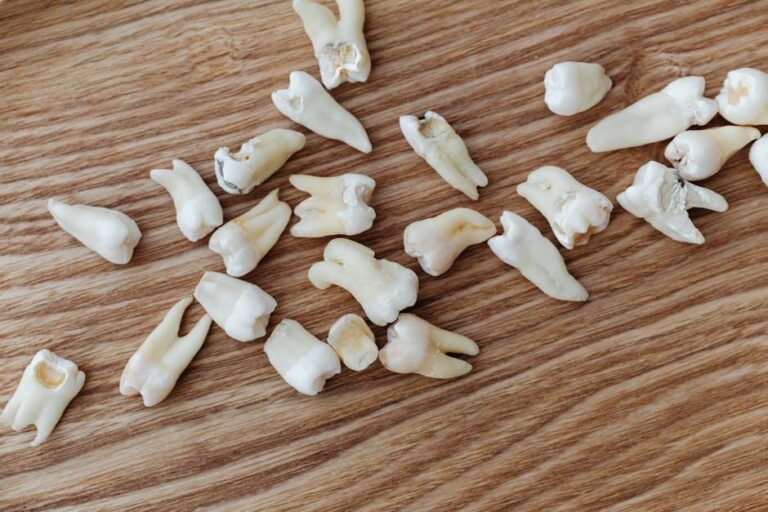
UB: Untreated Dental Issues Can Lead to Serious Illnesses in Older Adults
As we age, maintaining good oral health becomes increasingly important, yet dental issues in older adults often go untreated. According to research highlighted by Niagara Frontier Publications, ignoring dental problems in seniors can result in serious health complications beyond just tooth pain or discomfort. In this article, we explore the connection between untreated dental issues and systemic illnesses in older adults, share practical dental care tips, and explain why proactive oral health practices are vital for aging populations.
Understanding the Link Between Oral Health and Overall Wellness
Oral health is often a window to overall well-being. The mouth harbors millions of bacteria, and when dental hygiene is neglected, these bacteria can cause infections that impact more than just the teeth and gums. For older adults, whose immune systems might be weakened, untreated dental issues can escalate into serious conditions.
Common Untreated Dental Issues in Older Adults
- Periodontal Disease (Gum Disease): Chronic inflammation and infection of gums can lead to tooth loss and is associated with other health issues.
- Tooth Decay and Cavities: Cavities left untreated can cause painful infections and abscesses.
- Dry Mouth (Xerostomia): Common among seniors due to medications; increases risk of decay and oral infections.
- Oral Cancer: Early detection is critical, but often symptoms are overlooked.
How Untreated Dental Issues Trigger Serious Illnesses
Research from UB and reports by Niagara Frontier Publications emphasize that the mouth acts as a gateway to the body. Below are several health risks directly linked to untreated dental conditions in older adults:
| Dental Issue | Potential Health Risk | Explanation |
|---|---|---|
| Periodontal Disease | Heart Disease & Stroke | Inflammation from gum disease may increase arterial plaque buildup, raising cardiovascular risks. |
| Dental Abscess/Infections | Respiratory Diseases | Oral bacteria can be inhaled into the lungs causing pneumonia, especially in seniors with weakened lungs. |
| Untreated Tooth Decay | Diabetes Complications | Poor oral health complicates blood sugar control, worsening diabetes management. |
| Oral Inflammation | Alzheimer’s Disease | Chronic oral infections may contribute to neuroinflammation linked to cognitive decline. |
The Benefits of Maintaining Oral Health for Older Adults
Prioritizing dental care offers numerous benefits that contribute directly to seniors’ quality of life:
- Improved Nutritional Intake: Healthy teeth and gums enable proper chewing and digestion.
- Reduced Risk of Chronic Illness: Prevents infections that worsen systemic diseases.
- Enhanced Self-Esteem and Social Interaction: Healthy smiles encourage confidence and engagement.
- Pain Avoidance: Timely care prevents dental pain and costly emergency visits.
Practical Tips for Preventing Dental Problems in Older Adults
Here are effective, easy-to-follow strategies for seniors and their caregivers to maintain oral health and avoid complications:
Daily Care Habits
- Brush teeth at least twice a day with fluoride toothpaste.
- Floss daily to remove plaque from between teeth.
- Use mouthwash recommended by dental professionals to reduce bacteria.
Routine Dental Visits
- Schedule dental check-ups at least twice a year.
- Request screenings for oral cancer and gum disease.
- Discuss any dry mouth symptoms with your provider – it’s often treatable.
Lifestyle Adjustments
- Limit sugary foods and drinks that contribute to tooth decay.
- Quit smoking – a major risk factor for oral cancer and gum disease.
- Stay hydrated to combat dry mouth and maintain oral tissue health.
Case Study: Mrs. Thompson’s Journey to Better Oral and Overall Health
Mrs. Thompson, a 72-year-old retired teacher, suffered from persistent gum bleeding and tooth sensitivity. Like many seniors, she delayed dental visits due to fear and cost concerns. After being hospitalized with pneumonia, her doctor highlighted untreated gum disease as a contributing factor. Upon seeking treatment, her dental care team addressed the periodontal issues and helped her establish daily oral hygiene routines. Within months, Mrs. Thompson noticed a remarkable improvement in not just her oral health but also her energy levels and overall wellness.
This case underscores the critical role that addressing dental issues plays in preventing serious illnesses in older adults.
Conclusion: Prioritizing Oral Health is Essential for Healthy Aging
Untreated dental issues in older adults can no longer be viewed as isolated problems. As Niagara Frontier Publications and UB research emphasize, oral health significantly impacts systemic health, especially in seniors. Timely dental care, preventive habits, and greater awareness can dramatically reduce the risks of heart disease, diabetes complications, respiratory infections, and even cognitive decline.
If you or an older loved one are experiencing dental problems, don’t delay seeking professional care. Maintaining oral health is a cornerstone of aging well, contributing to a healthier, happier, and more comfortable life.
Stay informed, stay proactive, and smile confidently into your golden years.


